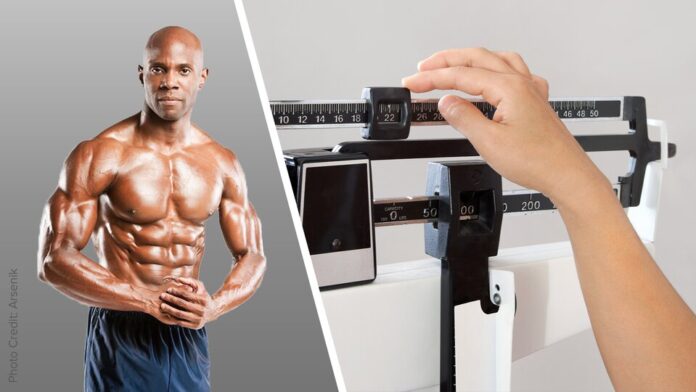[ad_1]
Q: For the past few years, my weight-loss resolutions have failed. How can I set resolutions that I can fulfill?
Why do people need a New Year’s resolution as motivation to make positive and appropriate changes in their life? Mostly it’s because a resolution is a psychological mindset, and the new year is the perfect opportunity to establish a fresh new start and set new goals. It’s also the perfect time for people to make better lifestyle and health decisions and try to be better than they were the year before.
One of the reasons that people fail at New Year’s resolutions is that they set broad, ambiguous, and unrealistic goals, such as, “I want to start losing weight in 2021,” “I want to get in shape next year,” or, “I want to be absolutely shredded starting in January.” These goals are not defined. A concrete, realistic resolution would be to lose 20 pounds in three months, drop 5 percent body fat in 10 weeks, or lose 5 inches by March 1. When you can set a goal that is realistic and there is a defined timeline in which to get it done, it is much easier to accomplish.
Tips for Making Realistic Resolutions
1. Pick just one resolution, as opposed to setting multiple goals.
It is much easier to accomplish one thing that you write down and do everything possible to achieve. The American Psychological Association suggests that focusing on just one behavior at a time gives you a greater chance of long-term success.
2. Make a plan and write it down.
Write down your resolution on paper, and then list what you will do to accomplish your goal. Putting things down on paper, where you can see them, helps reinforce your motivation and makes you more accountable.

For example, let’s say your goal is to lose 20 pounds in three months. What are you going to do to accomplish that? Here are some specific, achievable steps you might include in your plan:
- Perform 30 minutes of cardio at least 3-4 days a week.
- Perform weight training for 30-40 minutes at least 3 days a week, making sure I target every single body part.
- Eat green vegetables and fruits with lunch and dinner.
- Drink 6-8 cups of water per day to keep me hydrated and feeling full throughout the day.
- Make sure that my meals are balanced with protein, carbs, and healthy fats. For proteins, I will eat chicken, turkey, fish, beef, salmon, or tilapia. My complex carbs will come from oatmeal, sweet potatoes, brown rice, beans and legumes, and whole grain pastas. For healthy fats, I will have unsalted almonds, pistachios, peanuts, and pecans; almond butter; and will cook with sunflower, canola, and coconut oils.
3. Track your weekly progress.
Seeing your weekly progress on paper will keep you motivated to continue what you need to do to accomplish your resolution. Your weekly log will keep you accountable, and on days when you are not feeling motivated, that log should kick-start you into to remembering your goal.
4. Create a support system.
You’ll need a support system to help you on your New Year’s resolution journey. Your family, friends, spouse, or significant other played a huge part in helping you get where you are now. Positive support from the people you care about will go a long way when you’re trying to maintain your resolve. They can help you stay motivated, especially if you have some stumbles along the way.
Transform your body online with Obi Obadike’s Perfect Anatomy Online Coaching/Training Program.
[ad_2]
Source link












